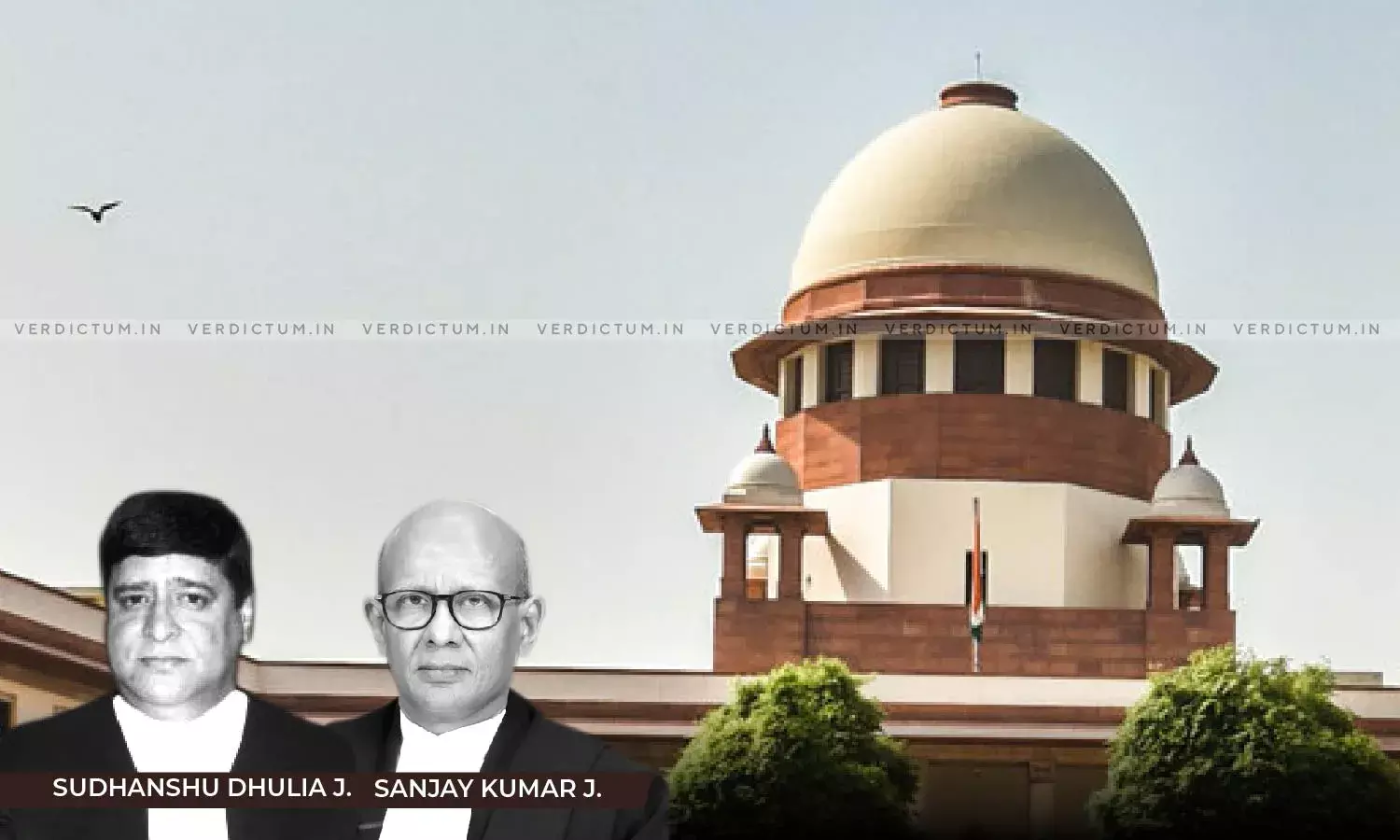Bombay Rent Control Act| Unless Contract Permits Sub-Letting, It Won’t Be Lawful After Coming Into Operation Of Statute- SC

The Supreme Court has recently held that unless the contract itself permits sub-letting, it shall not be lawful, after coming into operation of the Bombay Rents, Hotel and Lodging House Rates (Control) Act, 1947, for a tenant to sub-let the premises let out to him.
The Court noted that there was a clear interdiction against transfer or assignment by the tenant of the business being run in the leasehold premises in favour of a third person.
The two-Judge Bench comprising Justice Sudhanshu Dhulia and Justice Sanjay Kumar observed, “… in the ordinary course and notwithstanding anything contained in any other law, unless the contract itself permits sub¬letting, it shall not be lawful, after coming into operation of the Act of 1947, for a tenant to sub-let the premises let out to him or to assign or transfer in any manner his interest therein.”
The Bench said that the reliance placed by the High Court upon a provision was wholly misconceived.
Senior Advocate Vinay Navare appeared on behalf of the appellants while Advocate Sudhanshu S. Choudhari appeared on behalf of the respondent.
Facts –
A batch of appeals arose out of the judgment passed by the Bombay High Court. A plea was filed for recovery of possession of the leased premises from the tenant wherein the Trial Court decreed the suit with regard to the entitlement to claim eviction of the tenant under Section 13(1)(e) of the Bombay Rent Control Act.
A two months’ time was granted to the tenant to vacate the premises and such a judgment of the Trial Court was confirmed in appeal by the Additional District Judge, Pune, vide a judgment. Being aggrieved with the judgment of the High Court, the appellants approached the Apex Court.
The Supreme Court in view of the facts of the case asserted, “… the issue is whether the tenant could have assigned his leasehold interest in favour of Krishna B Shetty under the assignment agreement dated 15.01.1985 (Exh.49), overriding the condition in the lease deed to the contrary. … the very execution of the assignment agreement dated 17 15.01.1985 (Exh.49), whereby the tenant admittedly assigned his business in the leasehold premises in favour of Krishna B Shetty for ₹2,00,000/- and accepted a sum of ₹50,000/¬ as earnest money, was sufficient in itself to establish transgression of the lease condition and the statutory mandate.”
The Court further asserted that mere execution of a genuine partnership deed by a tenant, whereby he/she converted a sole proprietary concern into a partnership business while continuing to actively participate in the business and retaining control over the tenanted premises wherein the business is being run, would not amount to sub¬letting but such a principle was not applicable to the current matter as the tenant did not stop short at executing the agreement.
“The very act of execution of this document was sufficient in itself to complete the breach of the lease condition and the statutory mandate and did not require anything further. Therefore, the subsequent failure of Krishna B Shetty in his specific performance suit in Civil Suit No. 623 of 1986, be it for whatever reason, is of absolutely no relevance or consequence”, said the Court.
The Court also said that the breach is complete on his part upon such execution itself and that the failure of the assignee in his suit for specific performance against the tenant is of no import. The Court, therefore, directed that the respondents (legal representatives of the deceased shall vacate the suit premises and hand over the same to the appellants within two months.
Accordingly, the Court allowed the appeals, set aside the judgment of the High Court, and restored the judgment of the Trial Court.
Cause Title- Yuvraj @ Munna Pralhad Jagdale & Ors. v. Janardan Subajirao Wide


